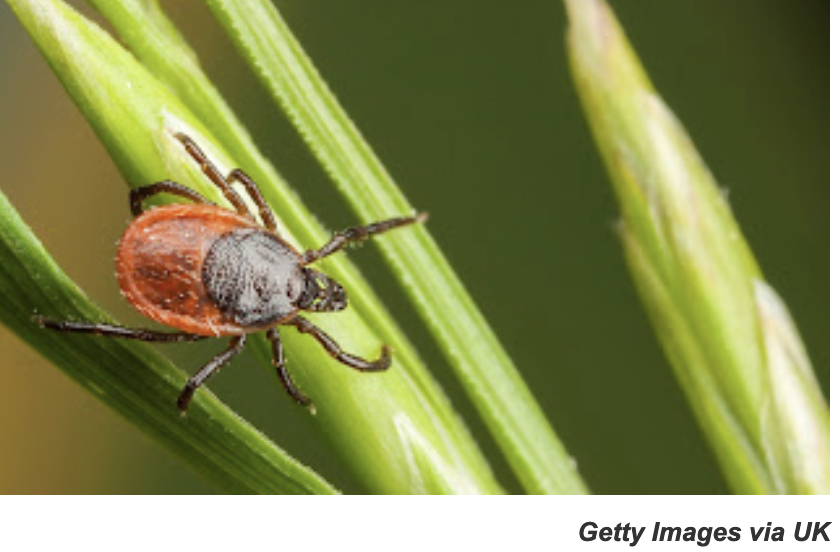UK wants your ticks: dead, dry and properly packaged

By Jordan Strickler
University of Kentucky
The Kentucky Tick Surveillance Project is now accepting tick-testing submissions from Kentucky residents. This project, produced by the University of Kentucky Martin-Gatton College of Agriculture, Food and Environment, aims to improve knowledge about where ticks are found and the diseases they might carry.
The results help further public health research at the state level and alleviate concerns for citizens worried about tick-borne illnesses.
To ensure the safety and integrity of the samples, and to comply with postal regulations, participants are urged to follow strict guidelines when preparing ticks for submission:
- Do not mail live ticks: Ensure that ticks are not alive when sent.
- Avoid liquid alcohol: Do not send samples in containers of liquid rubbing alcohol.
- Proper packaging: Avoid using only paper envelopes for mailing ticks as they may get damaged in mail processing machines.
- Avoid taping ticks: Do not place ticks between pieces of tape.
Participants must complete a submission form before sending their tick sample. This form is crucial for processing and can be found at https://bit.ly/49SixpO. Samples without a completed form will not be accepted. Detailed instructions for preparing the tick sample, including necessary supplies and packaging steps, ensure samples arrive in good condition for testing.
Important Considerations:
- Selective Testing: Ticks will not be tested for all possible pathogens. The project focuses on gathering data for surveillance purposes.
- Notification Process: Submitters will only be contacted if their submissions test positive for pathogens. There will be no notification of negative results.
- Backlog and Time: Due to the project’s volunteer nature, there is a testing backlog. Participants should expect delays.
- Not a Substitute for Medical Care: If a tick has bitten you and has symptoms, seek immediate medical attention. Do not rely solely on submitting the tick for health decisions.
“Community involvement is the backbone of the Kentucky Tick Surveillance Project,” Larson said. “Every tick submitted is a piece of the puzzle in understanding our state’s tickborne disease landscape. We thank everyone who participates for their contribution to this important work.”
Please send all ticks to: Tick Surveillance Program, c/o Subba Palli, Department of Entomology,
S-225 Ag Science Center North, Lexington KY 40546-0091.
For more information, visit https://entomology.ca.uky.edu/ticksurveillance2022.